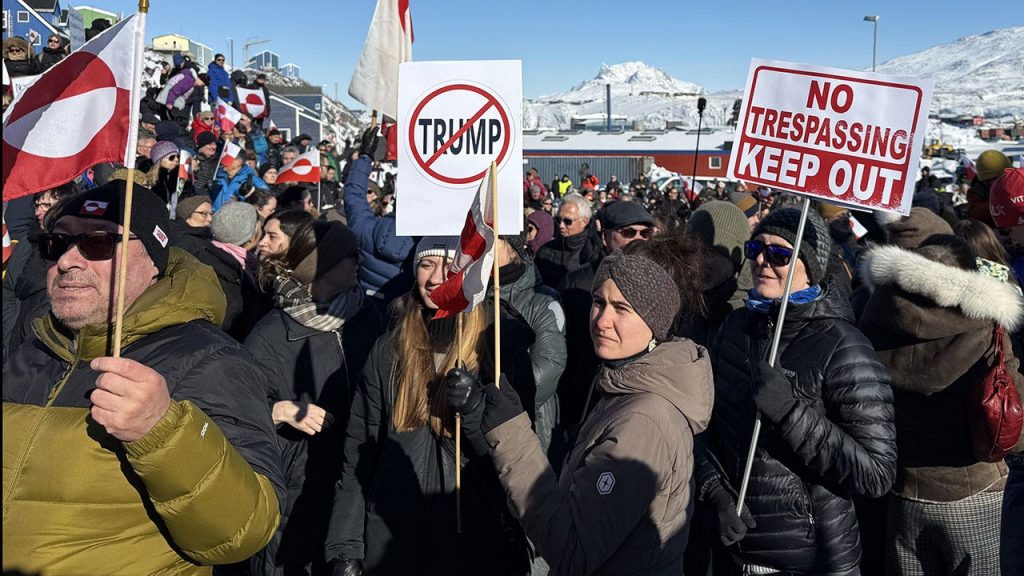France Stands with Greenland: A Call for Global Respect and Cooperation
In a recent visit to Greenland’s capital of Nuuk, French Foreign Minister Jean-Noël Barrot delivered a powerful message that resonated beyond the icy shores of the Arctic territory. His words served as both a declaration of solidarity and a subtle rebuke to those who might view Greenland as a geopolitical chess piece rather than a sovereign territory with its own voice and future. Speaking with conviction, Barrot emphasized that Greenland “is not up for grabs” and certainly “not for sale,” statements that many interpreted as a direct response to previous expressions of interest from former U.S. President Donald Trump about purchasing the island. The timing of these remarks, coming just days after Denmark summoned the U.S. ambassador over alleged covert influence operations in Greenland, highlighted the growing tension surrounding this strategically important Arctic region.
The French minister painted a concerning picture of global politics, describing a world undergoing “brutalization” by major powers who seem intent on replacing cooperation with coercion. “The certainty of peace, prosperity and democracy are all being called into question by the resurgence of new empires,” Barrot observed while standing on Greenlandic soil. Though he directly mentioned Russian President Vladimir Putin’s war in Ukraine as an example of this troubling trend, his broader comments seemed to encompass other global powers as well, including those who might view Greenland through a purely strategic lens rather than respecting its autonomy and connections to Europe. This vision of international relations based on respect rather than dominance underscored France’s position that “the greatness of a nation cannot be rebuilt on the servitude of its neighbors or allies.”
Barrot’s visit wasn’t merely symbolic—it had practical implications as well. He confirmed that French officials would return to Greenland in the coming months to develop a new critical minerals agreement, building on a 30-year mining deal signed in May between Nuuk and a Danish-French consortium for aluminum production. This economic cooperation represents a different model of engagement with Greenland, one based on mutual benefit rather than unilateral acquisition. The French minister’s presence alongside a French military vessel in Nuuk’s harbor also sent a message about France’s commitment to maintaining a presence in the region, though framed in terms of partnership rather than domination. These concrete steps demonstrate how France is offering Greenland a relationship founded on respect for its autonomy while acknowledging its strategic importance.
The French position on Greenland appears to be part of a broader European stance, with Barrot explicitly stating, “Greenland is an Arctic territory, it is a European territory. We belong to the same family.” This framing of Greenland as part of the European community stands in contrast to approaches that view it primarily as a strategic asset to be acquired. French President Emmanuel Macron had previously visited Greenland in June, where he similarly emphasized the importance of respecting the island’s territorial integrity. This coordinated diplomatic effort suggests that European nations are increasingly united in their desire to ensure Greenland’s future remains in Greenlandic hands, with the autonomous territory making its own decisions about partnerships and development rather than becoming a bargaining chip in great power competition.
Despite these diplomatic efforts, the geopolitical interest in Greenland shows no signs of abating. Former President Trump has repeatedly expressed interest in “acquiring” Greenland, viewing it through a primarily strategic lens. A senior administration official connected to Trump was quoted saying that “The President believes Greenland is a strategically important location, and is confident Greenlanders would be better served if protected by the United States from modern threats in the Arctic region.” This framing positions potential U.S. control as protective rather than acquisitive, though it still fundamentally challenges the current autonomous status of Greenland within the Kingdom of Denmark. The persistence of this interest, despite international pushback, underscores the growing importance of the Arctic in global strategic thinking as climate change opens new shipping routes and access to natural resources.
Barrot’s parting message to Greenland was one of reassurance and commitment: “Greenland and Denmark are not alone – Europe and France stand by their side today and tomorrow.” This statement encapsulates the broader significance of his visit, which went beyond routine diplomacy to address fundamental questions about sovereignty, respect, and international cooperation in a world increasingly characterized by competition. As climate change transforms the Arctic landscape and increases its strategic value, Greenland finds itself at the center of international attention it neither sought nor necessarily welcomes. France’s intervention represents an effort to ensure that whatever the future holds for this vast island of just 56,000 people, that future will be determined by Greenlanders themselves, in partnership with allies who respect their autonomy, rather than by distant powers who see only strategic advantage and natural resources to be claimed.


